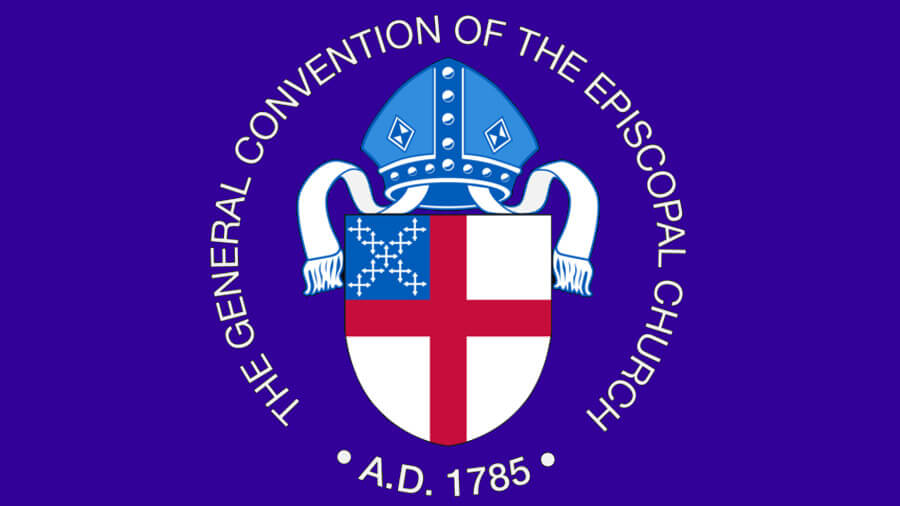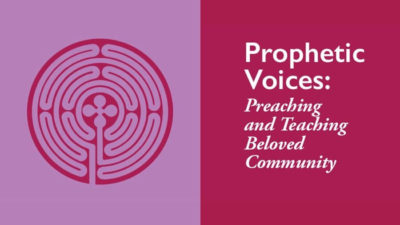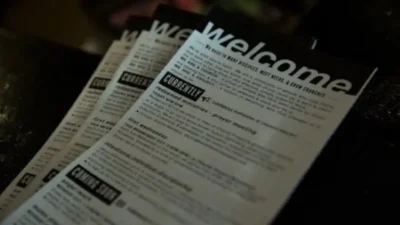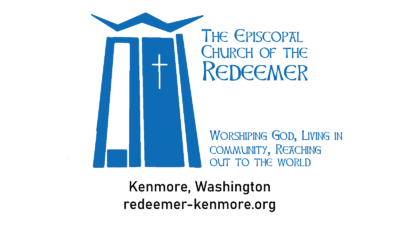The Executive Council of The Episcopal Church is meeting February 17-19, 2025, in Linthicum Heights, Maryland. These are the opening remarks from the Presiding Bishop of the Episcopal Church and President of the House of Deputies.
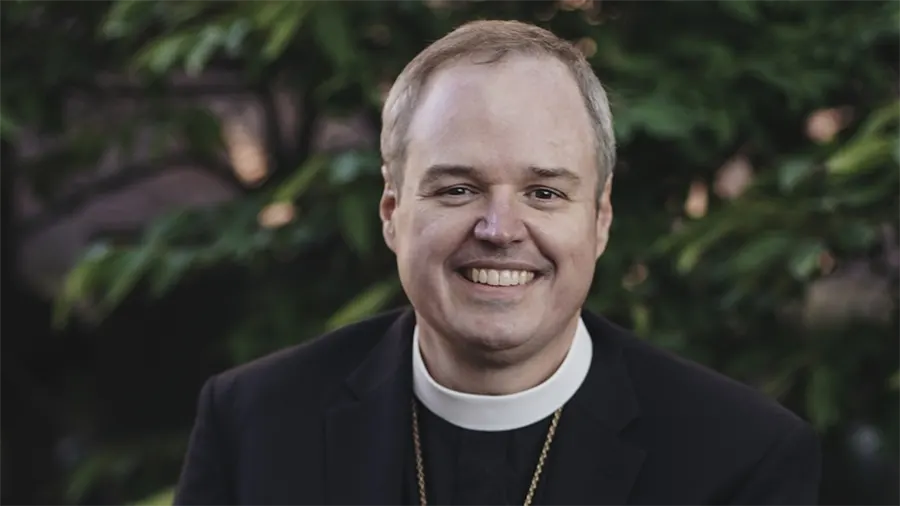
Presiding Bishop Sean Rowe
Following is a lightly edited transcript of opening remarks by Presiding Bishop Sean Rowe.
Good morning. It’s good to be here with all of you this morning, I’m glad that we all are finally gathered back in this place, especially given the hard time many of us had traveling yesterday. Thank you for persevering through the weather and making time for this ministry.
It would be an understatement to say that the world has changed a good deal since we were in New Brunswick just a few months ago. We are weathering what is proving to be a hard season for us and for the people that we serve, for sure, and many of us are afraid and looking to the church to provide a sense of safety and a moral witness in this time. That’s a good place to look.
How best can we do that in these tumultuous times?
I believe that we, as the board of The Episcopal Church, have been presented with a singular opportunity to lead through this particular time with clarity and with purpose. As the political landscape in the United States becomes even more confusing and harder to navigate, we are being called to make decisions here in this place that are firmly rooted in the kingdom of God.
In that kingdom, where we find our true citizenship, migrants, transgender people, the poor and vulnerable are not at the edges fearful and alone. They are not reviled and scapegoated. Instead, in God’s kingdom, the people who have too often been pushed to the margins are at the center. They are the bearers of salvation. Their struggles reveal to us the kingdom of God. And as Professor Kelly Brown Douglas wrote to me recently: It is not simply a matter of treating those marginalized and oppressed in our society with dignity and respect. It is understanding that the “world order” that is God’s for us begins with making their struggles the center of our understanding of the world/future that God calls us to.
If we believe this to be true, what does it mean for the way we lead this church? What does this understanding of the kingdom of God mean in practical terms for our work on Executive Council? What does that mean for this meeting?
First, I believe it means that we must remember that we live in a world in which the enemy is bound and determined to sow division among us, and to make us forget who we are and to what kingdom we belong.
When we forget our citizenship in the kingdom of God, we too easily turn on one another, succumbing to our need to regard people as other. We become seduced by a world that tells us our worth and our value has to come at the expense of someone else. We fail to love our siblings in Christ, who were created by God in unique and wonderful ways.
But when we remember that we belong to God—when we refuse to succumb to division and deceit and rely instead on this Christian community of the Executive Council, we can find the face of Christ in one another, extending grace and understanding even when we are on opposite sides of debates or deliberations. We can breathe deeply and rest secure in the knowledge that we are all members of the body of Christ, and each of us is needed to make the body whole.
Second, we must remember that our job, as the board of The Episcopal Church, is to lead an institutional structure that has tremendous power to serve and comfort and transform God’s people in congregations and ministries in all the countries we serve. To be sure, there are times when we need to speak with one voice to the rulers of the world. And indeed, we are called to use the power and privilege we have to advocate to our leaders, to lift up our voices and articulate the values we share. Yet, I believe that our true power lies not in me making a barrage of statements, or in us collectively reacting to every outrage that the world presents.
Instead, our power lies in a churchwide structure rooted in Christ and in the kingdom principles that can make a strong and effective witness to the gospel of Jesus Christ. When we do that, we are making it more possible for our congregations and grassroots ministries to worship God, serve God’s people, and transform lives every day. And as a board, this is our greatest opportunity. It is our primary focus.
Finally, we must remember to keep our eyes focused on Jesus. Like the disciples on the road to Emmaus, we are sometimes walking along, failing even to see the risen Christ is walking right alongside us all the way.
Friends, we are leading this church we love through uncharted waters, and I do not pretend that it is easy, or that it will be simple. I only know that we are here to do the work that God has given us to do. We must do it faithfully and with love for one another and for the Lord we serve.
I look forward to this meeting and this time together.
Thank you.
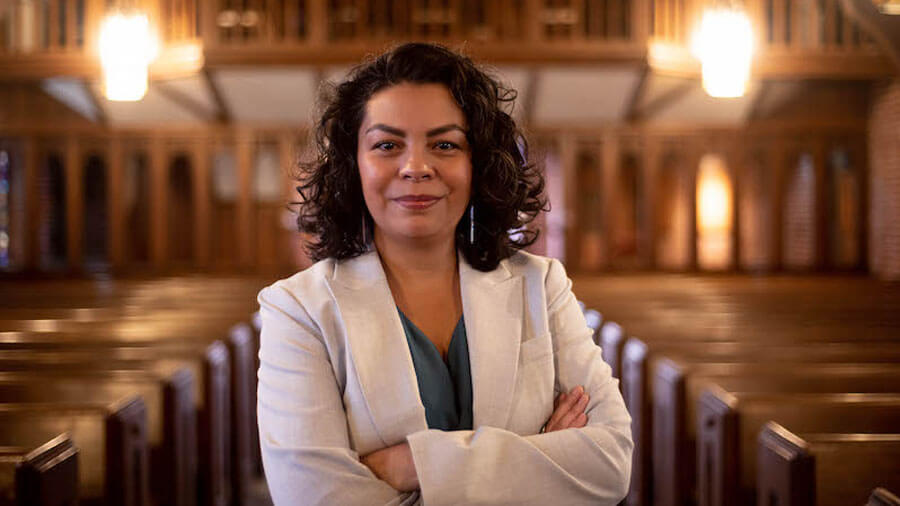
President Julia Ayala Harris
Following is a lightly edited transcript of opening remarks by House of Deputies President Julia Ayala Harris.
Presiding Bishop Rowe, members of Executive Council, our companion church partners, churchwide staff, and distinguished guests:
We gather in a moment that demands not just courage and clarity, but prophetic imagination. The winds of change are not merely shifting the world around us—they are calling us to reimagine who we are as leaders in Christ’s church. Like the disciples in that storm-tossed boat, we might see only the threatening waves. But Christ calls us to look deeper, to recognize that in times of upheaval, transformation takes root—even when the journey seems uncertain.
The path before us echoes with sacred stories both ancient and new. Growing up in Chicago’s multicultural Mexican Catholic community, I saw from a young age how the image of Our Lady of Guadalupe transformed ordinary spaces into sanctuaries of hope. Her face—on kitchen altar cloths, in storefront murals, tucked into worn wallets—spoke of a God who sees the forgotten and lifts up the lowly. She appeared not to the powerful or the rich but to Juan Diego, one deemed insignificant and unimportant by the world’s standards. This witness reveals that God’s transformative work often begins at the margins, just as Mary proclaimed in her Magnificat.
Guadalupe’s image transformed the margins into places of sacred hope, and just as the voices of justice have called us to pay attention to transformation where the world least expects it—so, too, must we, as church leaders, shape our governance not as gatekeepers of an institution, but as stewards of a movement led by the Spirit. This is our sacred charge.
As I address Executive Council today, I speak not just to a governing body, but to the heart of our church’s witness in the world. Our decisions here ripple through the life of every diocese, every congregation, every seeker who is looking to The Episcopal Church right now as a beacon of radical welcome and transformative love. As we make decisions about resource allocation and policy, we directly influence the capacity of our congregations to serve their communities—whether that’s supporting a food pantry in Appalachia, sustaining a ministry with immigrant families in Los Angeles, or enabling a small parish in Puerto Rico to rebuild after a natural disaster. This is not mere administration—it is a deeply sacramental act of stewarding God’s mission in our time.
We are in what Scripture calls a kairos moment—a time when divine purpose intersects with human decision. The forces that fragment our world into echo chambers of fear and division call us to embody a different way of being—one that mirrors the boundary-crossing, table-expanding love that we see in Jesus. Our baptismal promises are not abstract vows but concrete commitments that shape our governance, these roles in which we’ve been elected by our people to serve. When we promise to “seek and serve Christ in all persons” and “strive for justice and peace,” we are describing not just personal discipleship but institutional responsibility.
The baptismal waters that marked us as Christ’s own forever bind us to the promise that transcends political moments and institutional anxieties. Paul reminds us that our struggle is not against flesh and blood, but against the powers that would divide and diminish God’s beloved community. This spiritual wisdom calls us to resist not people but the dividing forces of fear, exclusion, and indifference that corrupt our common life.
We see this in the commitment embodied in our church’s decision to stand with our faith partners in protecting houses of worship as sanctuaries of welcome. This is not about politics—it is about embodying Christ’s radical hospitality in our very structures and policies. The Gospel compels us to welcome the stranger, to care for the vulnerable, and to ensure that all who seek spiritual sanctuary can do so freely.
And my friends, if we fail to lead with courage, we risk not just stagnation, but irrelevance. If we fail to structure our church in alignment with our values, we risk losing the trust of those who need us most.
In this work, we are blessed by Presiding Bishop Rowe’s prophetic leadership. He reminds us that governance and mission are two expressions of the same divine calling. But this work is not his alone—it’s for all of us. As Executive Council, we have the responsibility not just to respond to his leadership, but together, to shape, to support, and to sustain a long-term vision for our church, ensuring that our governance empowers dioceses to be the hands and feet of Jesus in their communities.
So as we turn to the matters before us—from stewarding our resources to deepening our missional commitments—each agenda item represents an opportunity to demonstrate what faithful leadership looks like in a fractured world. This is the work before us—not just to talk about justice, but to structure our church in such a way that makes it real. Not just to name our values, but to ensure they shape how we steward resources, how we lead our dioceses, how we create bodies and policies that embody the Gospel.
The world yearns for a Christianity that bears witness to Jesus’ transformative love and redeeming power—a faith that chooses bridge-building over wall-building, understanding over accusation, justice over complacency. This witness begins here, in how we deliberate, in how we disagree, in how we discern together the movement of the Spirit.
So, my friends, we must not ground ourselves in procedure alone, but in deep prayer and prophetic imagination. As Guadalupe appeared to Juan Diego with a vision of hope, as Mary sang a song of God’s justice transforming the world, may the work we do here herald that same divine promise—that through faithful leadership and courageous action, God is indeed making all things new. I pray that every decision we make reflects not just who we are, but who God is calling us to become.
Thank you for your faithful service to this church we love so very much. May the God who calls us to make all things new—who turns valleys of dry bones into gardens of hope—bless and guide our work together.
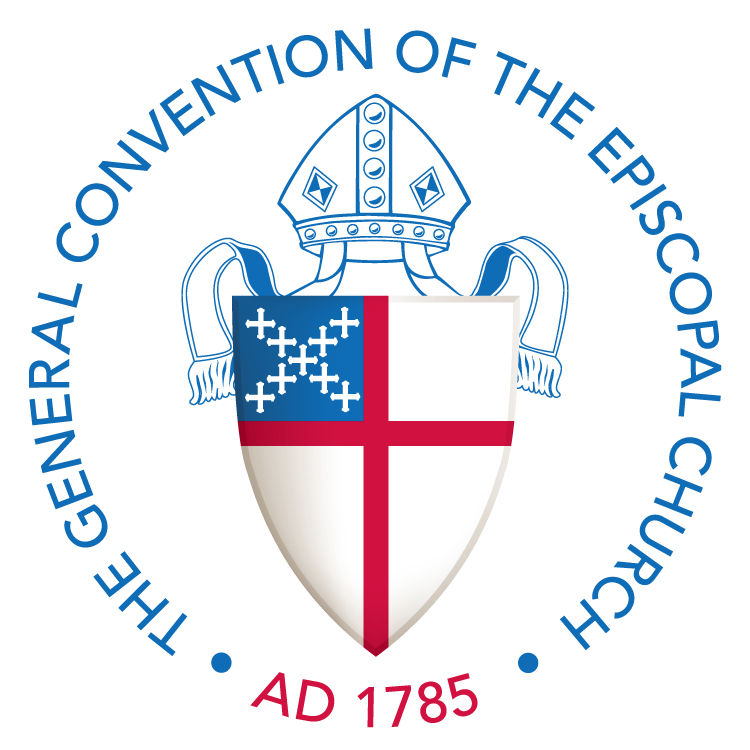
Executive Council of the Episcopal Church
The Executive Council of the Episcopal Church administers the program and policies adopted by the General Convention. It was called the National Council from 1919-1964.
It is currently composed of twenty members elected by General Convention, eighteen members elected by the Provincial Synods, and the following ex officio members:
- The presiding bishop
- The president of the House of Deputies
- The vice president, secretary, and treasurer of the Executive Council
Members are elected to six-year terms with half the membership elected each triennium. The body must have specified numbers of bishops, presbyters, and lay persons. The council meets at least three times each year.

Church of the Redeemer
Welcome to Church of the Redeemer: Worshiping God, living in community, and reaching out to the world. We are an Episcopal Church serving north King County and south Snohomish County, Washington. As you travel your road, go with friends walking the way of Jesus at Redeemer.
Church of the Redeemer is at 6210 Northeast 181st Street in Kenmore, Washington. We are a short distance north of Bothell Way, near the Burke-Gilman Trail. The entrance looks like a gravel driveway. The campus is larger on the inside than it is on the outside. And we managed to hide a large building on the side of a hill that is not easily seen from the street.
The Episcopal Church welcomes you.

